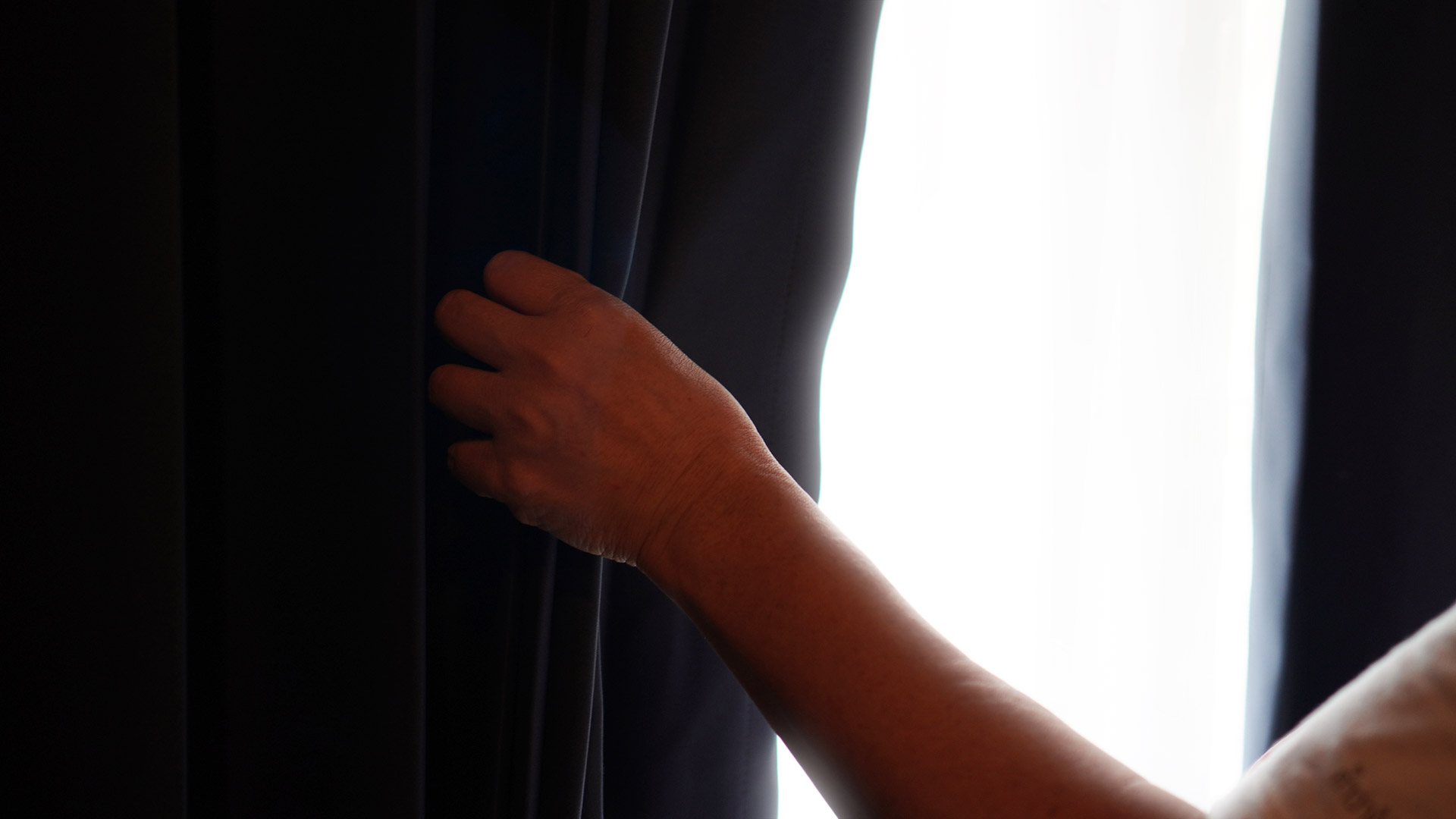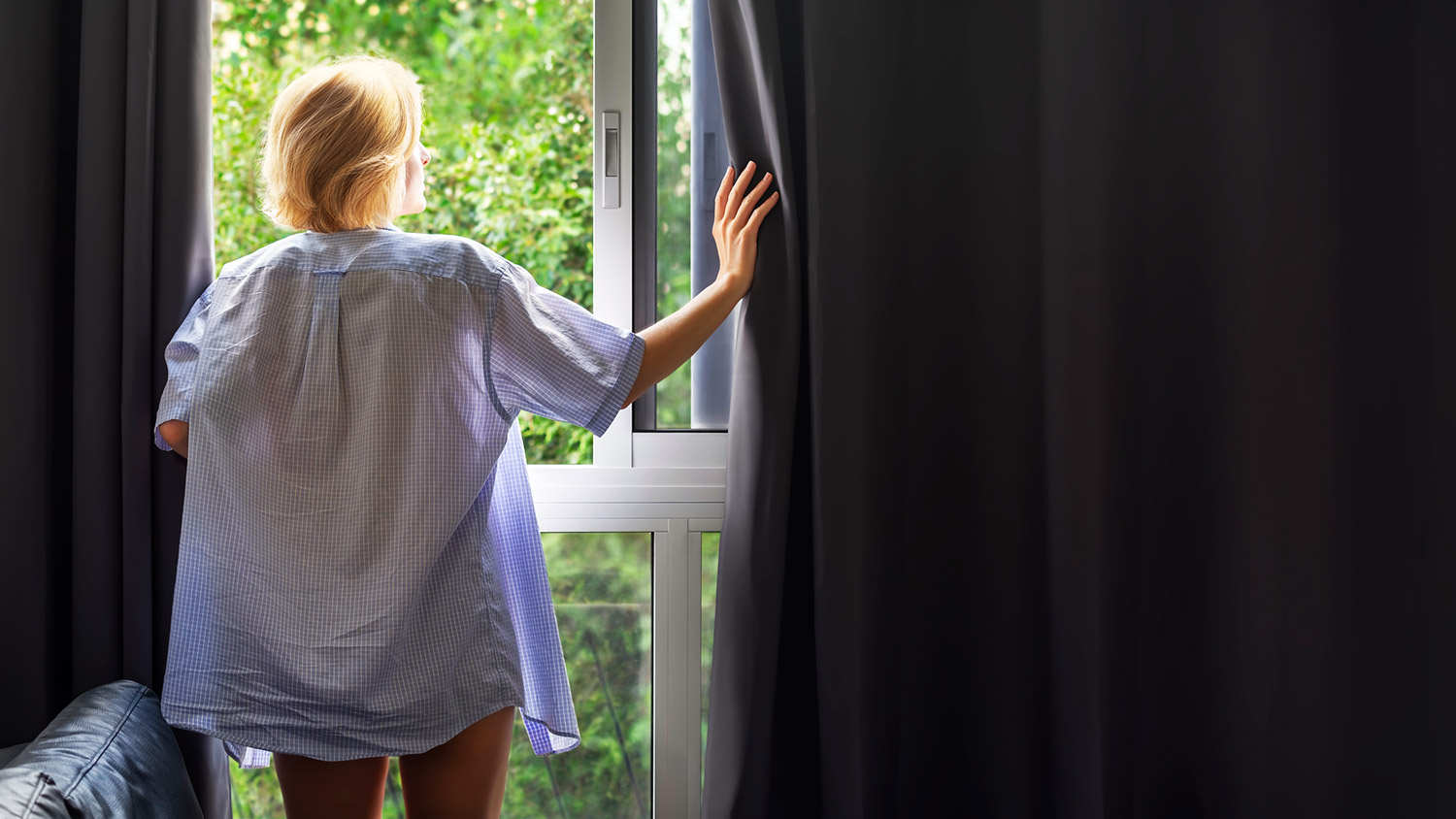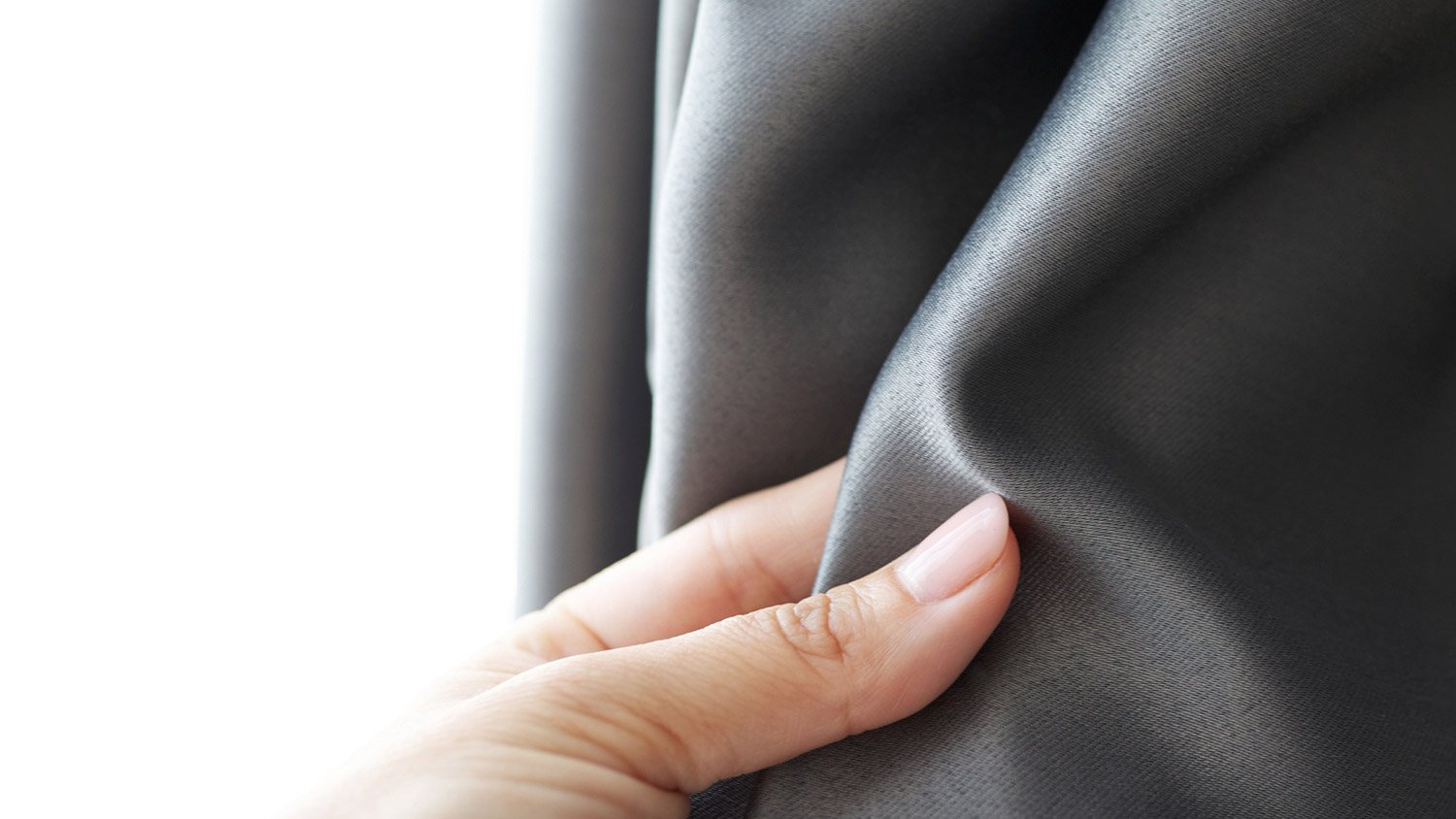Should you buy blackout curtains? A sleep expert explains the pros and cons
Learn how blackout curtains can improve your sleep quality – and why they might not be such a great idea

Can blackout curtains help if you have trouble falling or staying asleep at night? Your environment could be to blame if there's too much natural or artificial light, and blackout curtains offer a solution to this problem by blocking out all external light sources. How do they work, though, and do you really need them to sleep better?
To help us answer that question, we reached out to Jeff Kahn, a published sleep expert who's also co-founder and CEO of the Rise Science sleep-tracking app. He shared five reasons why investing in blackout curtains is the right move. Of course, there's no one-size-fits-all solution to achieving better sleep so you'll also discover four scenarios where you may want to consider alternative methods.
Finding the best mattress and best pillow to enhance your sleep is certainly important but for optimal results, you should take a holistic approach and work on creating a calm and peaceful sleep environment. At the bottom of this page, you'll find other ways to cultivate and maintain proper sleep hygiene in addition to (or instead of) using blackout curtains.
What are blackout curtains?
Blackout curtains are designed to block natural and artificial light from infiltrating your space. Unlike standard drapes, blackout curtains are made with bulky, tightly-woven materials and have a double-lined construction to prevent light from seeping in. They can also reduce outside noise and add a layer of insulation to your room, which can help lower your energy bills.
What are the benefits of blackout curtains?

1. They'll help your internal clock stay on track
All of us have an internal circadian clock that's affected by light and darkness. Even when our eyes are shut, light can still break through and send a signal to our brains to wake up. This can cause problems when we're trying to wind down for the evening.
"Blackout curtains can help you get the healthy, naturalistic sleep you need by creating an optimal dark sleeping environment," says Kahn. "They block out external light sources such as street lights, car headlights, and early morning sunlight, which can interfere with your sleep-wake cycle and the production of melatonin, a hormone that regulates sleep."
Kahn notes that even a little bit of light can affect your sleep: "Dim artificial lighting can be thousands of times brighter than moonlight, [negatively] influencing your sleep patterns." Obviously, blackout curtains block outside light, but you'll need to take stock of light sources from within your bedroom that could be keeping you up at night, too – alarm clocks, desk lamps, and nightlights, to name a few.
2. They're useful for shift workers
While Kahn says most sleepers can benefit from blackout curtains, he strongly recommends them for shift workers who work nontraditional hours to keep their circadian clock in rhythm. Shift work sleep disorder (SWSD) affects 10% to 40% of shift workers and can lead to insomnia (the inability to fall asleep) or hyposomnia (extreme fatigue), which can manifest as a lack of focus and productivity.
Sign up for breaking news, reviews, opinion, top tech deals, and more.
3. They can benefit young children (and their parents)
According to Kahn, parents of young children who nap during the day should consider adding blackout curtains to help prepare their little ones for sleep. As this study shows, sufficient sleep is essential for cognitive development during early childhood. Parents can benefit from their kids napping, as well, as it'll allow them time to catch up on errands or indulge in a little self-care.
Ultimately, young kids will grow out of their daytime naps by the time they're five years old, but the sun may still be out when it's their bedtime. Adding blackout curtains to your child's bedroom will make it easier for them to fall asleep, regardless of how much light is outside.
4. They're a necessity in some parts of the world
Urban areas are rife with nighttime light pollution courtesy of street lights, car headlights, and fluorescent signs – and blackout curtains can prevent all of them from disturbing your sleep. They can also reduce noise, which helps if you live somewhere with a vibrant nightlife.
Kahn points to a 2020 study of more than 10,000 teenagers living in areas with abundant outdoor artificial lighting: "The teenagers not only slept less but were also more likely to suffer from anxiety or mood disorders." The effects aren't any better for adults. "Recent research found ambient nighttime light exposure is a risk factor for a variety of adverse health outcomes, including cardiometabolic disease," Kahn says.
Meanwhile, some areas experience a phenomenon called Midnight Sun, where the sun doesn't set for months at a time. Blackout curtains make it possible for residents who live in such places to maintain a normal sleep schedule.
5. You'll save on your energy bills
Blackout curtains do more than keep light from penetrating through your window – they can help insulate your home. You won't need to crank the air conditioner or heat as high, and you'll eventually spend less on your energy bills over time. (However, specialized thermal curtains are generally a better choice for preventing heat from leaving your home.)
Still, adding blackout curtains will make it easier for you to achieve an optimal bedroom environment: "Cool, dark, and quiet," says Kahn.
What are the drawbacks of blackout curtains?

1. They could severely limit your natural light
Blackout curtains mimic the effects of darkness. Keeping them closed for extended periods during waking hours can limit your exposure to natural light, which Kahn says can negatively impact your mood and productivity.
"Keep your blackout curtains open from the moment you wake up and close them again about an hour before you go to sleep," suggests Kahn. If possible, get a pair of blackout curtains with an automated timer that you can set up to open just before your alarm goes off.
2. They're not made for smaller spaces
Blackout curtains are bulkier and wider than standard drapes. Those who live in smaller homes often don't have enough space to accommodate them. As a general rule of thumb, Kahn says, "Blackout curtains should be wide and long enough to completely cover your window for maximum light blocking."
If your space is too limited for blackout curtains, Kahn recommends blackout blinds, which offer similar light-blocking benefits for smaller windows.
3. They're not always easy to maintain
Most blackout curtains are made from dense materials that can't be laundered in the washing machine. You'll either have to wash them by hand or take them to the dry cleaners. That said, there are blackout curtains you can put in the washer – just read the care instructions to be sure.
In between deep cleanings, you'll need to keep your curtains free of dust and dirt to keep them from looking dull or triggering allergies. That shouldn't be so hard to do if you have one of the best vacuums for cleaning upholstery.
4. They're usually expensive
Given the quality and weight of their materials, blackout curtains are often costly. However, if you're good with a sewing machine or know someone who is, you can save money and create your own set of blackout curtains by stitching blackout panels to the backs of standard drapes.
Other ways to improve your sleep hygiene
How else can you create an environment that'll foster restorative sleep? Use any of the following suggestions in addition to (or instead of) using blackout curtains:
- Limit artificial light exposure: "I recommend wearing a sleep mask to block out any errant sources of light from inside your room, as well as trying to find these light sources and covering them with tape," says Kahn.
- Don't bring your phone to bed: You'll want to dock your smartphone as far from your bed as possible, too – preferably in another room, since screen time can affect how well you sleep.
- Use white noise: If you have a hard time sleeping when it's noisy outside, invest in a white noise machine that'll mask or cover up other sounds.
- Try sleeping on a cooler surface: Aside from keeping your room temperature within an ideal range, consider a cooling mattress or a cooling pillow that'll draw heat away from your body.

Jeff Kahn is the co-founder and CEO of Rise Science, as well as a published sleep expert. Kahn studied at Northwestern University, where he earned a bachelor's degree in health systems engineering plus a master's degree in engineering design and innovation.
Alison is a freelance writer and editor from Philadelphia, USA. She is an expert mattress tester and sleep product reviewer, and has been sharing trusted buying advice and retail news for over a decade. When she isn't reviewing mattresses or hunting for deals, Alison can be found teaching/training in martial arts, fawning over skincare, and indulging in her quarantine-borne hobby: cooking.
